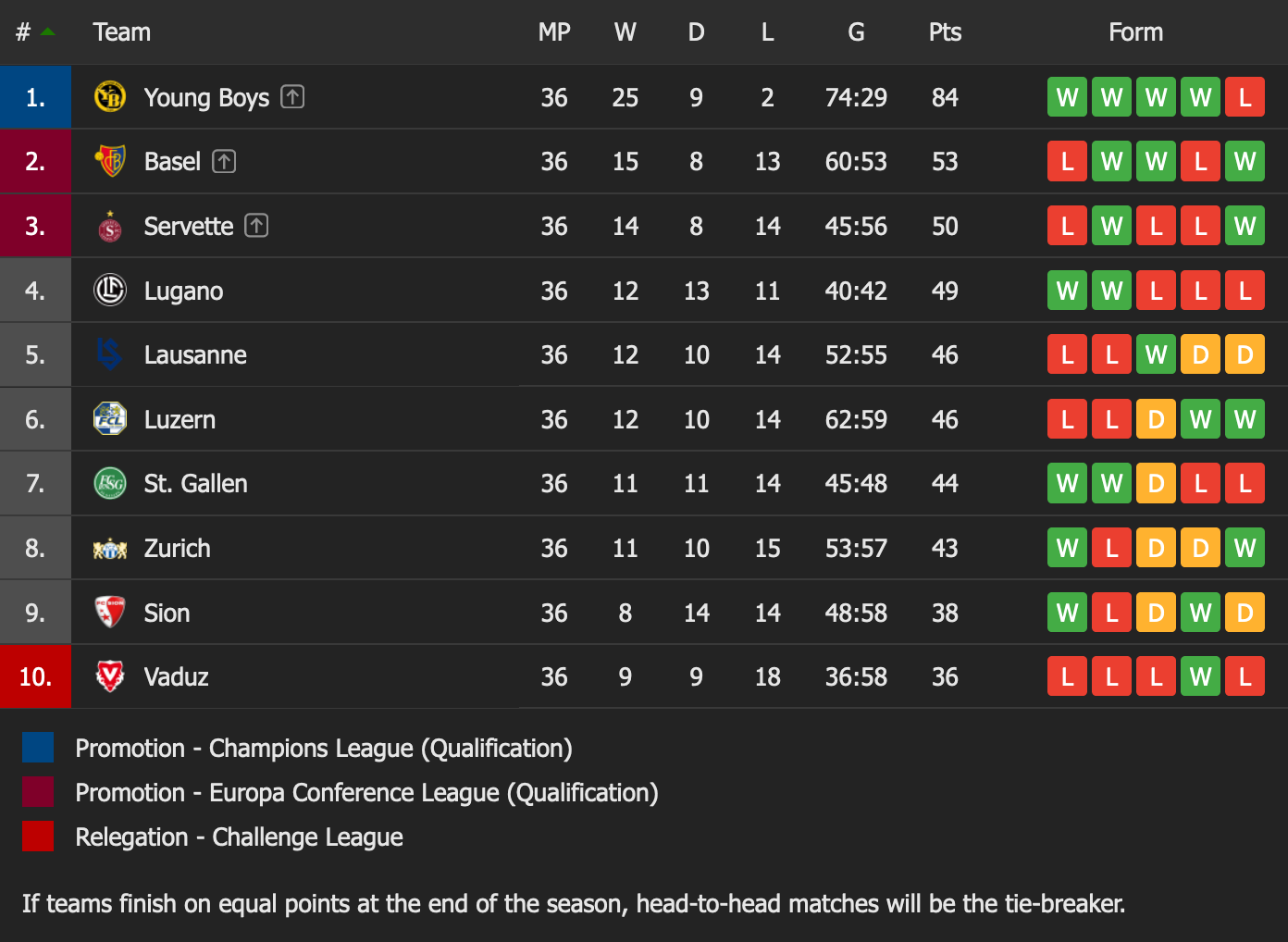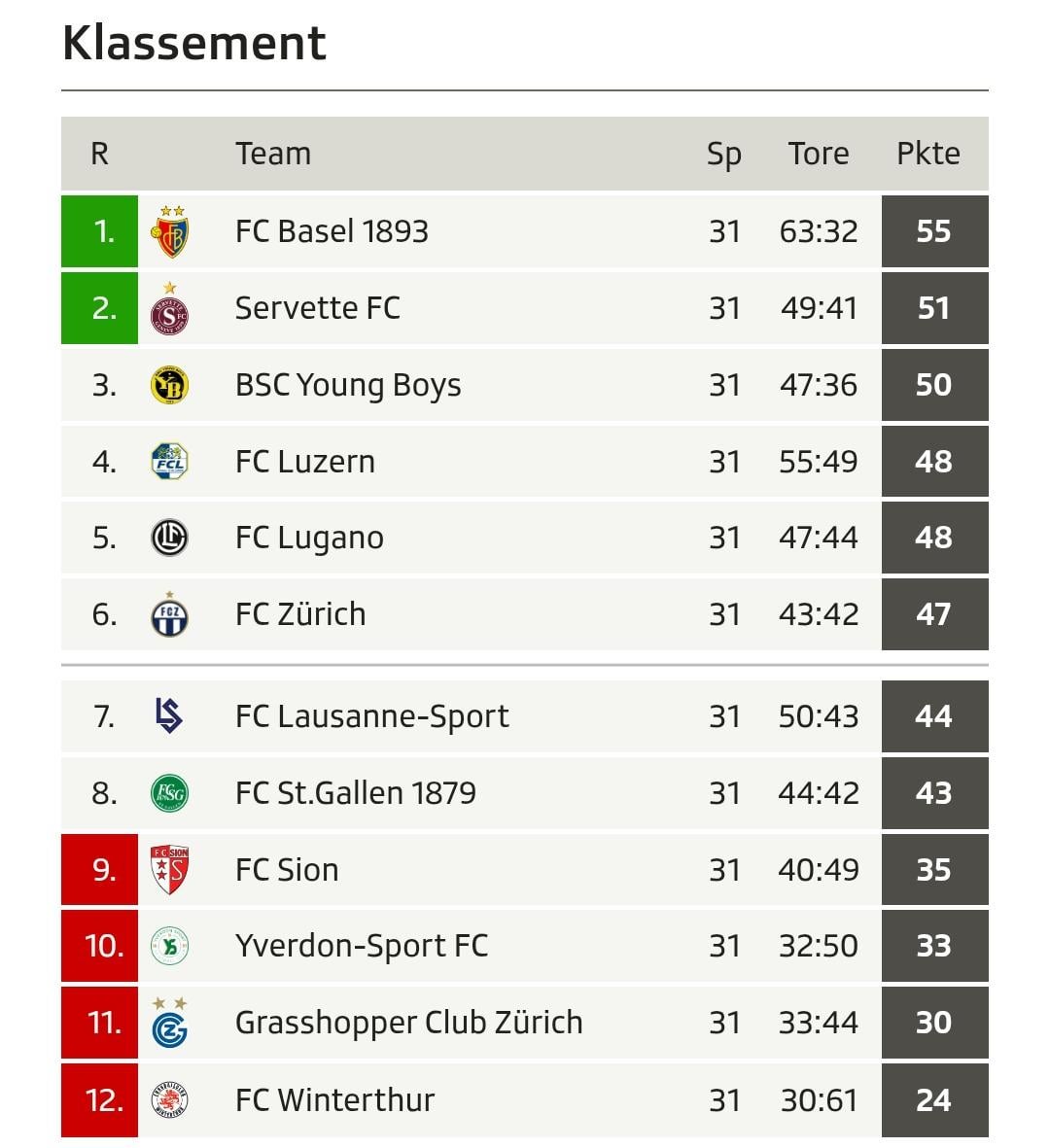Okay, here’s my attempt at a blog post about my Switzerland table league project, mimicking the provided style:

Alright folks, let me tell you about this thing I’ve been messing with – a Switzerland table league. Basically, I wanted to simulate the Swiss Super League, you know, the one where Grasshopper Club Zurich thinks they’re all that.
It all started because I was bored one weekend. I thought, “Hey, why not create a simulated league table? How hard can it be?”. Famous last words, right?
First thing I did was grab a list of all the teams. I mean, you can’t have a league without the teams, duh! I just Googled “Swiss Super League teams” and copy-pasted them into a spreadsheet. Nothing fancy.
Then came the head-scratching part. How do I actually simulate the games? I didn’t want to just randomly assign wins and losses. I wanted some kind of logic.
- I thought about using team stats, like their real-world goals scored and conceded. But that seemed like too much work.
- Then I considered some sort of Elo rating system. Again, too much effort for a fun, weekend project.
- Finally, I settled on a super simple “random with a slight bias” approach. Each team has a “skill” number, and the higher the number, the more likely they are to win.
To keep things real (as real as it gets in a simulation), I figured each team should play each other four times, just like the actual Super League. Twice at home, twice away. That’s a lot of matches!

Next up: The code. I know a bit of Python, so I decided to use that. Wrote a little script to loop through all the teams, generate the fixtures (the list of games), and then simulate each game based on my “skill” numbers.
The core of the simulation looked something like this (simplified, of course):
python
def simulate_game(team1_skill, team2_skill):
# Basic idea: higher skill = more likely to win

probability_team1_wins = team1_skill / (team1_skill + team2_skill)
random_number = *() # gives a number from 0 to 1
if random_number < probability_team1_wins:
return “Team 1 Wins”
else:

return “Team 2 Wins”
It’s rough, I know, but it worked for my purposes. I ran the simulation a bunch of times, tweaking the “skill” numbers until the results looked somewhat plausible.
The biggest pain? Displaying the results nicely. I messed around with a few Python libraries for creating tables, but nothing looked quite right. In the end, I just printed the league table to the console. Ugly, but functional.
The result? A simulated Swiss Super League season, complete with a final league table. Did Grasshopper win? Sometimes! But it was random enough that other teams got a chance too. I even added a bit to show the top scorer.
Would I do it again? Maybe. It was a fun little project, and I learned a bit about Python in the process. Plus, it kept me entertained for a weekend. Maybe next time, I’ll add more stats and make it a bit more realistic. Or maybe not. Depends how bored I get!

So yeah, that’s the story of my Switzerland table league simulation. Nothing groundbreaking, but a fun little way to spend a weekend.















